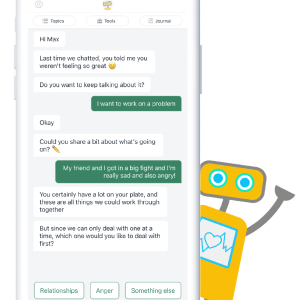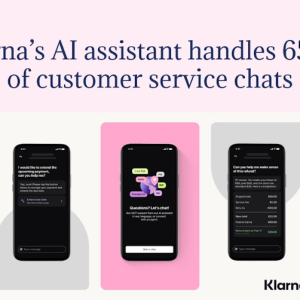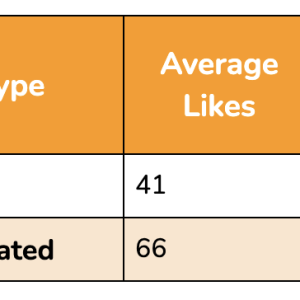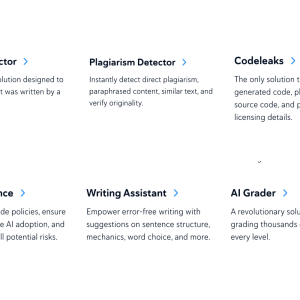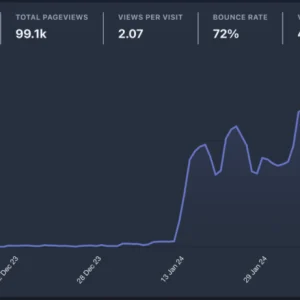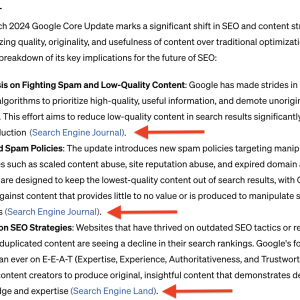In the ever-evolving world of marketing, staying ahead of the latest trends and strategies is crucial for success. One recent development that has caught the attention of marketers is the emergence of new Perplexity Ads. These innovative ads are designed to capture the attention of consumers by presenting them with puzzles, challenges, and riddles, creating an engaging and interactive advertising experience. In this article, we will explore what Perplexity Ads are, how they work, and why marketers need to incorporate them into their advertising campaigns.
- ChatGPT Growth: 8 Powerful Findings From Its Meteoric Rise
- How to Make Your Content Stand Out When Everyone Is Using AI
- 4 Ways to Use ChatGPT to Grow Your Business
- How to Build a List of Messenger Subscribers with Facebook Comment-to-Messenger Ads
- A Genuine Screpy Review: Boost Your Website Traffic With An AI Tool
Perplexity.ai just announced a new feature: It will soon show ads in its answers to user queries. Or, more specifically, in its related questions section at the bottom of its answer.
You are viewing: New Perplexity Ads: What Marketers Need to Know
Why the related questions section? Apparently, that section accounts for 40% of all the AI-powered search platform’s queries. The company also said that the ads will be relevant to the search query and native to the context.
The appearance of ads will likely be by the beginning of the third quarter, or roughly July.
Let’s take a quick look at this announcement and see why you, the marketer, should care.
Help Me Level Up with AI
What Is Perplexity.ai?
For anyone who has not yet heard of it (I only learned of this tool a month or so ago), Perplexity.ai is a conversational search engine that answers queries with natural language predictive text. It also includes videos and images in the response, as well as the sources it’s cited in a neat row at the top of its answer:
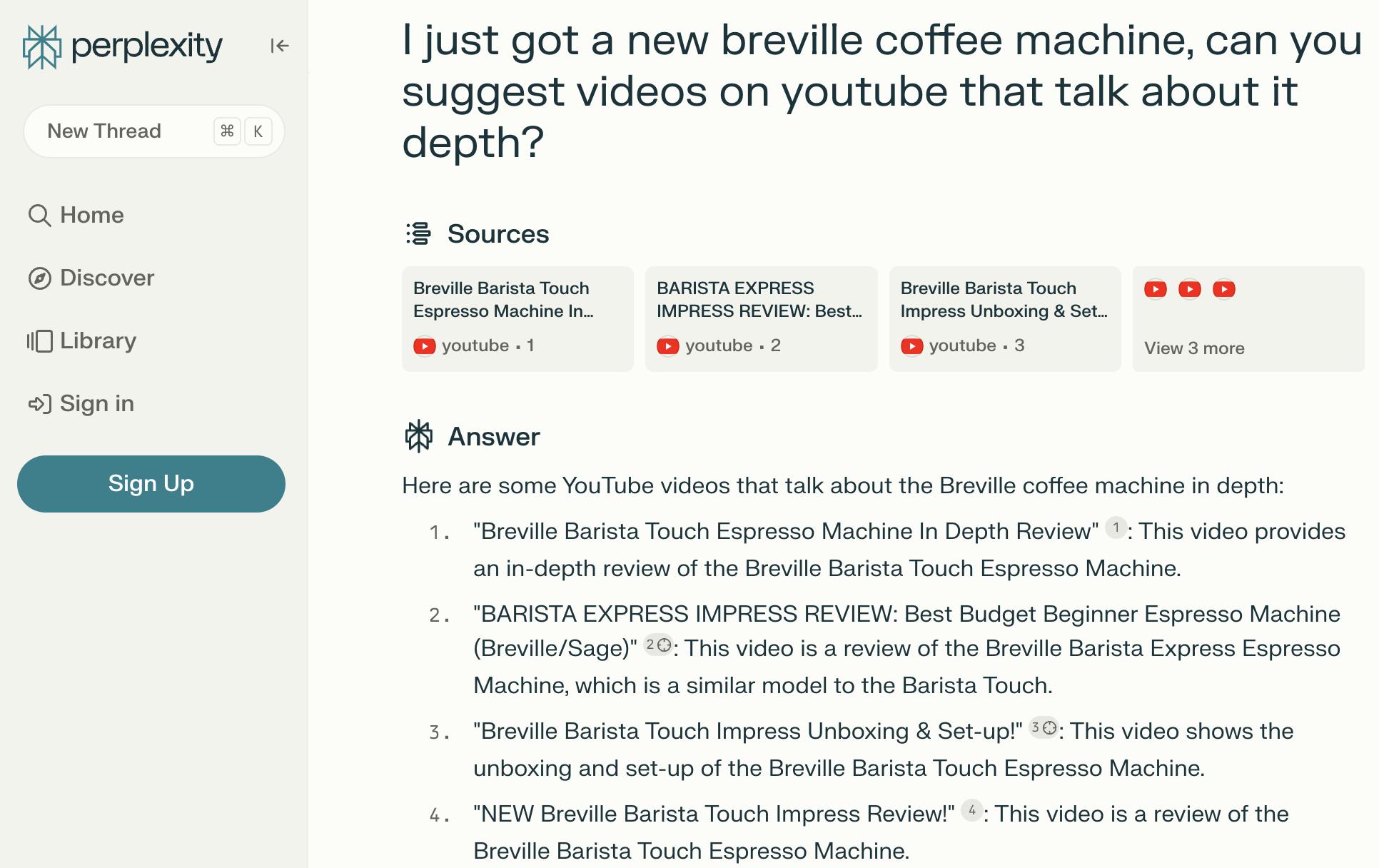
It was launched in 2022 (who knew?) and generates responses using web sources with links cited within the text to which you can ask follow-up questions. It’s basically a cross between Google search and ChatGPT conversations.


Operating on a freemium model, Perplexity.ai’s free product leverages OpenAI’s GPT-3.5 model along with its own enhancements. You can’t save threads in the free version, but there is a paid version, called Perplexity Pro, or Pro Search, which allows you to upload files, including images, save your threads, and generate images using AI. It also asks you questions to refine its answers.
Related Content: ChatGPT Gets Prominent Links: What You Need to Know
Innovating Search: Perplexity Ads in Its Search Results
So Perplexity just announced that it’s now incorporating advertisements into its search results. In contrast to its original ad-free model, this new model is about opening up more revenue avenues for the company while maintaining the balance between monetization and user experience. (Hopefully. I’m looking at you, Google.)
In addition to its main response, Perplexity also includes three related questions at the bottom, not unlike Google. According to the company’s chief business officer Dmitry Shevelenko: “These related questions, which account for 40% of Perplexity’s queries, are where the company will start introducing native ads, by letting brands influence these questions.”

See more : How to Create a ChatGPT Persona for Business Strategy
Perplexity’s decision to integrate ads into its platform is not just about the bottom line. It’s also a strategic move to sustain and improve its service. Running ads can, of course, provide the resources to continue iterating its platform and stay ahead of the competition.
However, this new feature raises important questions about how advertisements will be seamlessly woven into search results without compromising the quality and integrity that users have come to expect. I mean, we’ve all grumbled about Google’s increasing number and size of ads at the top of the SERPs…so, we shall see.
The Pros and Cons of AI-Powered Advertising
The use of AI in targeting and placing ads – which, of course, is not exactly new (think programmatic ads), but it has evolved quite rapidly recently – is promising for creating more relevant and engaging user experiences.
Pros of AI-powered ads:
- Targeting Precision: AI algorithms can analyze vast amounts of data to identify patterns and insights, which makes for highly targeted advertising that reaches the right audience at the right time.
- Improved ROI: By optimizing ad placements and personalizing messages, AI can enhance engagement rates, conversions and, thus, better ROAS for marketing campaigns.
- Efficiency and Automation: AI automates routine tasks such as bid management and audience segmentation, which saves you time and reduces the potential for human error (although you still have to be wary of baked-in biases).
- Dynamic Content Optimization: AI can test and optimize various elements of ads in real time, including images, headlines and calls to action.
- Predictive Analytics: AI’s ability to predict future trends based on past and current data can help businesses stay ahead of the curve by tailoring their advertising strategies to meet anticipated changes in consumer behavior.
On the other hand, the challenge will be to align its advertising model with user expectations.
Cons of AI-powered ads:
- Complexity and Integration Challenges: Implementing AI in advertising strategies can be complex, so it requires significant technical skills to integrate it with existing systems.
- Data Privacy Concerns: The extensive data collection and analysis involved in AI-powered advertising raise concerns about consumer data privacy and the ethical use of data.

- Lack of Creativity: While AI excels at optimizing and personalizing content, it tends to lack the creative intuition that human marketers bring to advertising campaigns.
- Dependence on Data Quality: AI’s effectiveness is heavily dependent on the quality and quantity of data it has access to. Poor data can lead to inaccurate targeting and less effective campaigns.
- Costs: While AI can save costs in the long term through efficiency gains, the initial investment in technology and expertise can be significant, making it less accessible for small businesses.
The platform’s ability to integrate ads without detracting from its core value proposition — providing accurate, fast and relevant search results — will be important in maintaining user trust.
On Perplexity’s About Page, it used to say (last week): “Perplexity was founded on the belief that searching for information should be a straightforward, efficient experience, free from the influence of advertising-driven models.”
But now it says: “Perplexity was founded on the belief that searching for information should be a straightforward, efficient experience.”
So we shall see.
Related Content: How to Optimize Your Brand for ChatGPT 🤖
What to Know About Perplexity’s New Ads
With 15 million monthly active users on this AI-powered search platform, it seems a decent enough number for marketers to be interested. And, of course, Perplexity has to make sure that its native ads or sponsored questions are relevant.
At the moment, its market share is pretty slim:

But search volume on this platform is growing fast: up 20,512% to 471K over the past year:

The target audience for Perplexity consists of programmers, students, writers/researchers, artists, and “professionals” (isn’t that what all these other groups, except students, are??):

See more : Jobs That Will Be Replaced by Marketing AI in 2023
The largest portions of its user base are located in Indonesia, United States and India:

And how do users feel about Perplexity?

Last Word on Perplexity Ads
Perplexity.ai’s decision to integrate ads into its search results represents a strategic shift towards revenue diversification while prioritizing (fingers crossed!) user experience.
Given the platform’s growing popularity and potential to influence online advertising, adapting strategies to leverage Perplexity.ai’s advertising opportunities could be a great opportunity for marketers seeking to engage with their target audiences.
Finding your place before the platform gets saturated and overpriced makes sense, so marketers should consider at least monitoring the platform’s evolving advertising model to see if it makes sense for you.
Key Takeaways:
- Perplexity.ai is integrating ads into its search results, aiming to balance revenue generation with user experience.
- The move reflects a strategic effort to sustain and enhance the service, aligning with industry trends in AI-powered advertising.
- Pros of AI-powered ads include precise targeting, improved ROI and efficiency, while cons involve complexity, data privacy concerns and dependence on data quality.
- Perplexity’s user base spans programmers, students, writers and other professionals, with significant usage in Indonesia, the United States and India.
- Marketers should consider the relevance and targeting of ads on Perplexity.ai, given its growing user base and evolving advertising model.
Help Me Level Up with AI
Perplexity FAQs
-
Is Perplexity better than ChatGPT?
It depends on your needs. Here’s a quick comparison:
- Focus: Perplexity leans towards information retrieval and exploration through search, while ChatGPT is more focused on creative text generation like articles, images (with the integration of DALL-E) or code.
- Features: Perplexity offers functionalities like file upload, code execution, and image search, which ChatGPT doesn’t fully have. With the paid ChatGPT Plus version, you can upload files, including PDFs and images, which it can analyze, and it can generate code.
- Cost: Perplexity offers a free tier with limitations and Pro version that costs $20 per month. ChatGPT also has a free version with limitations and a Pro version that costs $20 per month.
-
What does Perplexity AI do?
Perplexity is an AI-powered conversational search engine that goes beyond simply returning webpages. It uses large language models to understand your intent and provide comprehensive answers, follow-up question suggestions, and related content exploration.
-
Is Perplexity safe to use?
Perplexity emphasizes transparency by labeling sponsored content, but as with any AI tool, there’s always a potential for bias or inaccurate outputs. It’s important to be critical of the information you receive from this or any AI tool.
-
How much does Perplexity cost?
Perplexity offers a free tier with limitations on advanced features and Pro search queries. Their Pro plan provides more capabilities for a monthly subscription fee of $20 per month or $200 per year.
That’s a wrap on “New Perplexity Ads: What Marketers Need to Know” We hope you’ve found a trove of useful insights and fresh perspectives. Your opinions and ideas matter to us—join the conversation below and share your take! Hungry for more tech insights? Dive into our diverse collection of articles where innovation meets practicality. Discover More AI Softwares.
Stay in the loop with the latest in AI and tech – your journey into the digital future continues at guidelisters.com.
#Perplexity #Ads #Marketers
Source: https://guidelisters.com
Category: AI
